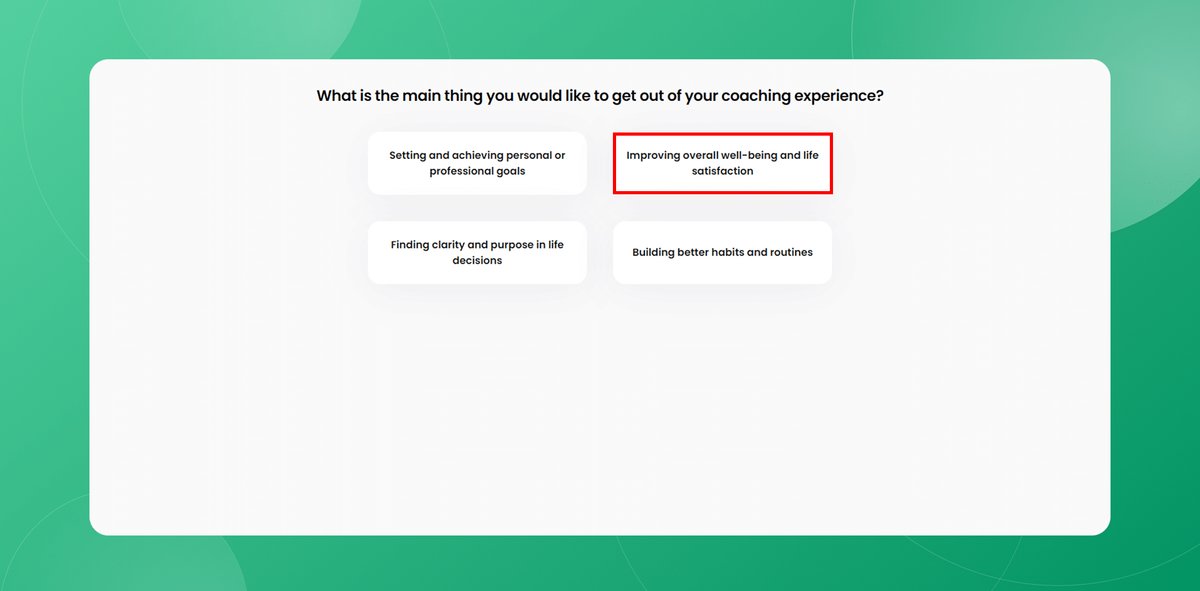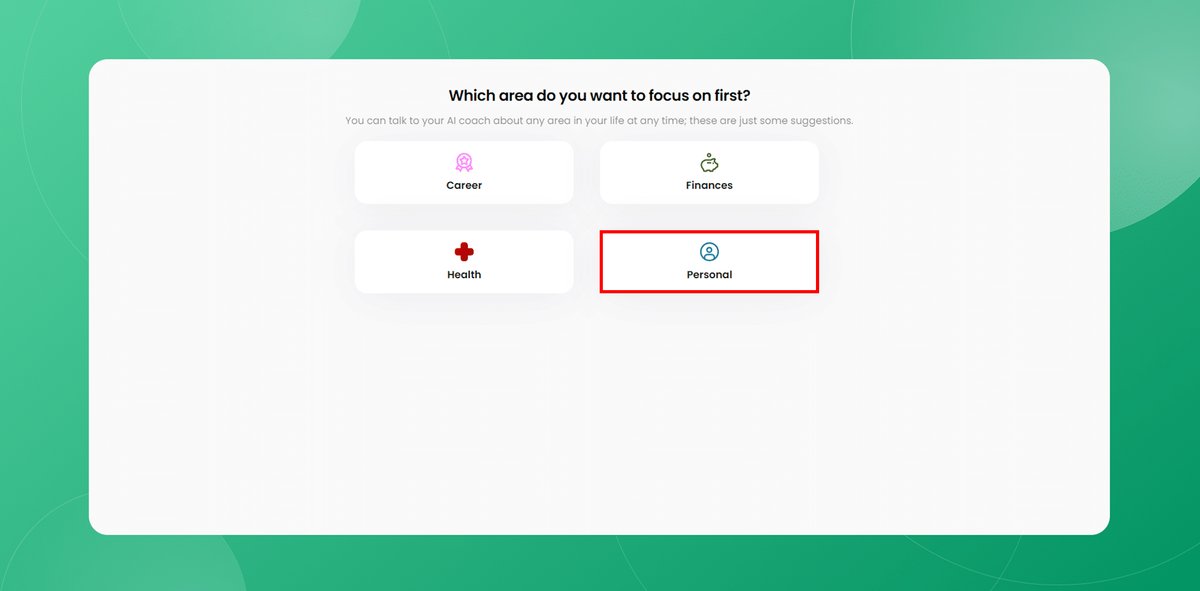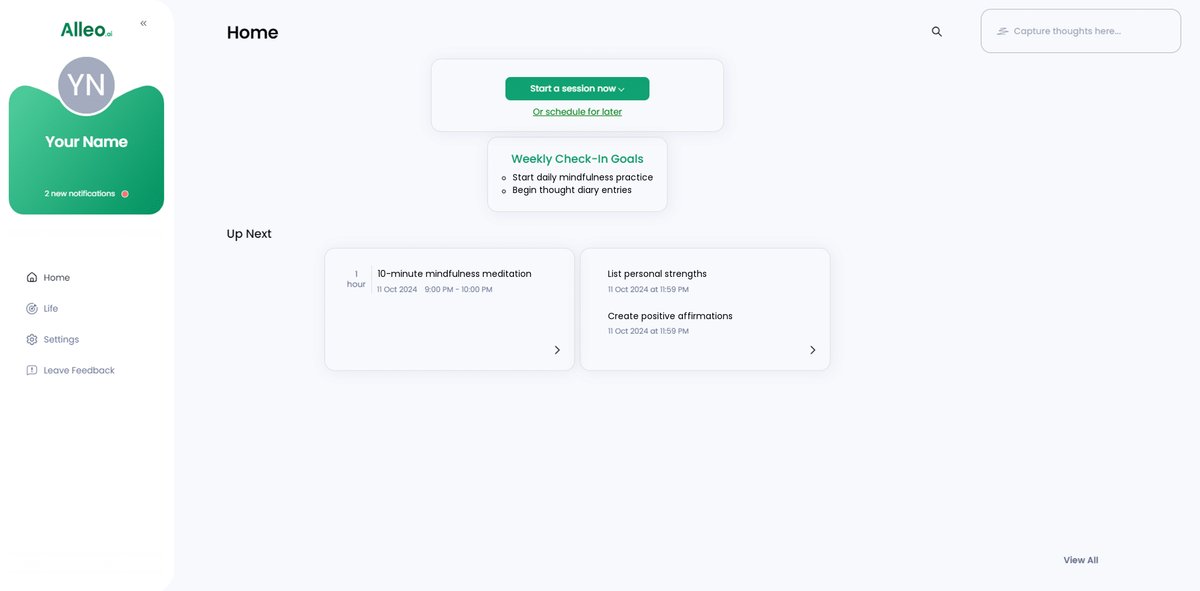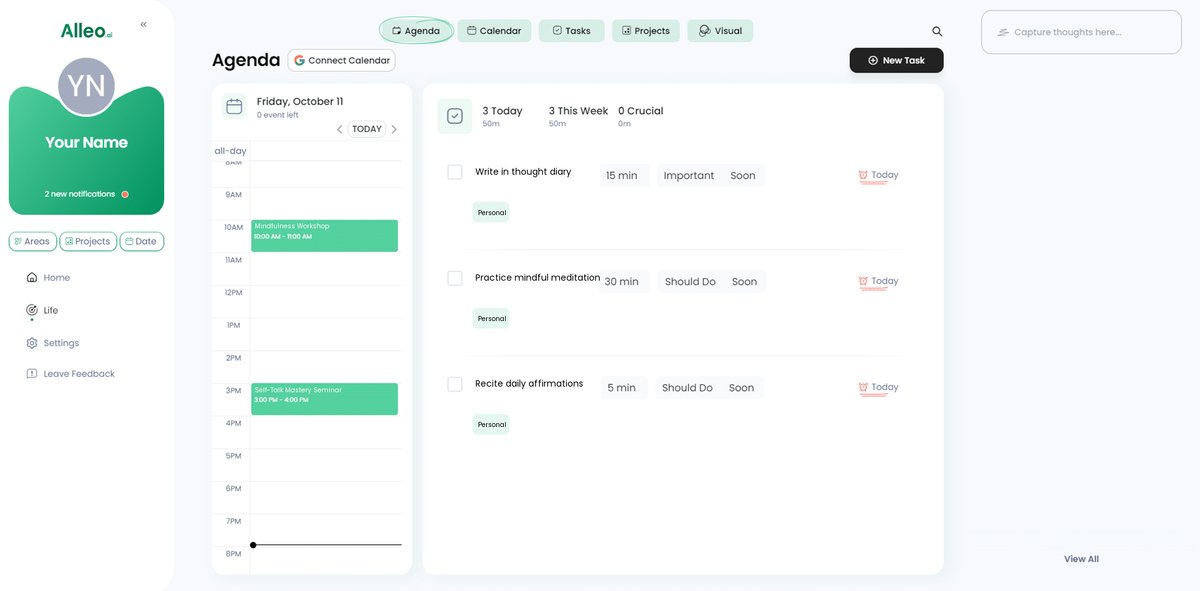6 Powerful Strategies for Professionals to Overcome Negative Self-Talk After Rejection
Are you tired of hearing that nagging voice in your head after each rejection, whispering, “I’m not good enough”? Overcoming rejection negative self-talk is crucial for building self-confidence in the workplace.
As a life coach, I’ve helped many professionals navigate these challenges. In my experience, negative self-talk can significantly hinder both personal and professional growth, often leading to imposter syndrome in high-achieving individuals.
In this post, you’ll discover actionable strategies to overcome rejection negative self-talk. We’ll explore mindfulness practices for professional development, cognitive restructuring, and building a solid support system. These cognitive behavioral techniques for professionals can help in reframing rejection as a learning opportunity.
Let’s dive in and explore how to boost your emotional intelligence in the face of career challenges.

Understanding the Impact of Rejection
Experiencing rejection often leads to a downward spiral of negative self-talk. Thoughts like “I’m not good enough” or “I’ll never succeed” become a common refrain. Overcoming rejection negative self-talk is crucial for maintaining self-confidence in the workplace.
This mindset can intensify emotional pain and strain both professional and personal relationships. Cognitive behavioral techniques for professionals can help address these challenges.
Many clients initially struggle with this cycle. They describe feeling stuck, unable to move past the rejection. Resilience building after career setbacks is essential for professional growth.
Some even find their confidence severely shaken, making it difficult to perform daily tasks. Positive affirmations for career growth can be beneficial in these situations.
Moreover, these negative thoughts don’t just affect your mood. They can create a feedback loop, making future rejections feel even more personal and devastating. Mindfulness practices for professional development can help break this cycle.
This can also lead to avoidance of new opportunities, further hindering growth. Overcoming rejection negative self-talk is key to combating imposter syndrome in high-achieving individuals.
Addressing these thoughts is crucial. By understanding their impact, you can start to take steps to combat them and maintain your emotional well-being. Reframing rejection as a learning opportunity is an important aspect of emotional intelligence in the face of career challenges.
A Roadmap to Overcoming Negative Self-Talk
Overcoming rejection and negative self-talk requires a few key steps. Here are the main areas to focus on to make progress in building self-confidence in the workplace.
- Practice mindfulness to detach from negative thoughts: Set aside time for mindful meditation and breathing techniques to enhance emotional intelligence in the face of career challenges.
- Keep a thought diary to identify thinking patterns: Write down and review negative thoughts to spot trends, a useful cognitive behavioral technique for professionals.
- Challenge negative self-talk with evidence: Replace negative statements with fact-based affirmations, helping to overcome imposter syndrome in high-achieving individuals.
- Use positive affirmations tailored to your skills: Create and repeat affirmations highlighting your strengths, supporting positive affirmations for career growth.
- Reframe rejection as a learning opportunity: List lessons learned and set improvement goals, aiding in resilience building after career setbacks.
- Seek support from trusted colleagues or mentors: Identify and regularly check in with your support network, leveraging networking strategies after professional setbacks.
Let’s dive in to explore these strategies for overcoming rejection and negative self-talk!
1: Practice mindfulness to detach from negative thoughts
Practicing mindfulness helps you detach from negative thoughts and maintain emotional balance, which is crucial for overcoming rejection and negative self-talk.
Actionable Steps:
- Set aside 10 minutes each day for mindful meditation to observe and detach from negative thoughts, boosting self-confidence in the workplace.
- Use mindfulness apps or guided meditations focused on emotional regulation to stay grounded and build resilience after career setbacks.
- Practice mindful breathing techniques during stressful moments to help you stay centered and improve emotional intelligence in the face of career challenges.
Explanation: Mindfulness allows you to observe your thoughts without judgment, reducing their emotional impact. By incorporating mindfulness into your routine, you can better manage stress and negative self-talk, effectively overcoming rejection and negative self-talk.
According to The Communication Council, mindfulness practices help in maintaining emotional regulation and preventing negative thought patterns from taking hold.
Key benefits of mindfulness include:
- Reduced stress and anxiety
- Improved focus and concentration
- Enhanced emotional regulation
These steps will make mindfulness a consistent part of your life, helping you maintain emotional well-being and develop resilience in your professional life.
Now, let’s look at keeping a thought diary to identify thinking patterns, which can be an effective cognitive behavioral technique for professionals.

2: Keep a thought diary to identify thinking patterns
Keeping a thought diary helps you recognize and understand your recurring negative thoughts, which is crucial for overcoming rejection negative self-talk.
Actionable Steps:
- Write down negative thoughts as they occur to capture them in real time, especially when facing career challenges.
- Review your thought diary weekly to identify patterns and triggers related to self-confidence in the workplace.
- Categorize thoughts into helpful and unhelpful to see their impact on your mindset and professional development.
Explanation: Keeping a thought diary allows you to track your negative thoughts and understand their origins. By identifying patterns, you can address them more effectively, which is essential for building resilience after career setbacks.
According to Verywell Mind, using a thought diary helps in cognitive restructuring, which can change negative thinking patterns over time. This is particularly useful for overcoming rejection negative self-talk and imposter syndrome in high-achieving individuals.
This practice will help you gain insights into your thought processes, making it easier to challenge and change negative beliefs. It’s a key cognitive behavioral technique for professionals aiming to enhance their emotional intelligence in the face of career challenges.

3: Challenge negative self-talk with evidence
Challenging negative self-talk with evidence is crucial for overcoming rejection and negative self-talk, shifting your mindset, and boosting your self-confidence in the workplace.
Actionable Steps:
- Identify negative self-talk: Write down each negative thought you have about yourself or your abilities, which can help address imposter syndrome in high-achieving individuals.
- Gather evidence: Collect facts and examples that contradict these negative thoughts, such as past successes or positive feedback, to build resilience after career setbacks.
- Replace negative statements: Use the evidence to create fact-based positive affirmations for career growth that counter your negative self-talk.
Explanation: These steps are essential because they help you see the reality beyond your negative thoughts and develop emotional intelligence in the face of career challenges.
By replacing harmful thoughts with factual affirmations, you can build a more positive self-image and enhance your professional development.
Research shows that reframing rejection as a learning opportunity can significantly improve your mental health and resilience, supporting your ability to overcome rejection and negative self-talk.
This practice will help you stay focused on your strengths and achievements, making it easier to face future challenges with confidence and implement effective networking strategies after professional setbacks.

4: Use positive affirmations tailored to your skills
Using positive affirmations tailored to your skills can boost your confidence and counter negative self-talk, helping in overcoming rejection and negative self-talk.
Actionable Steps:
- Create affirmations: List affirmations that highlight your strengths and achievements, focusing on self-confidence in the workplace.
- Practice daily: Repeat these affirmations each day, especially before challenging tasks, as part of your self-care routines for career-driven individuals.
- Visual reminders: Place visual reminders of your affirmations in your workspace to reinforce positive affirmations for career growth.
Explanation: These steps focus on reinforcing your strengths and achievements, helping you maintain a positive mindset and build resilience after career setbacks.
According to Selena Rezvani, greeting self-doubts with curiosity and compassion can help overcome them, which is crucial for addressing imposter syndrome in high-achieving individuals.
By regularly practicing positive affirmations, you can build resilience against negative thoughts and improve your overall confidence, enhancing your emotional intelligence in the face of career challenges.
Effective types of affirmations include:
- Statements of personal worth
- Acknowledgments of past successes
- Expressions of future potential
This practice will help you stay focused on your capabilities and achievements, making it easier to face future challenges and overcome rejection and negative self-talk.

5: Reframe rejection as a learning opportunity
Reframing rejection can transform setbacks into valuable learning experiences, helping professionals overcome rejection and negative self-talk.
Actionable Steps:
- List lessons learned: Write down what you learned from each rejection to identify growth areas and build resilience after career setbacks.
- Set improvement goals: Create specific goals based on feedback or self-reflection for continual improvement and self-confidence in the workplace.
- Share outcomes: Discuss your learning experiences with a trusted colleague or mentor to gain new insights and enhance emotional intelligence in the face of career challenges.
Explanation: By seeing rejection as an opportunity for growth, you can build resilience and improve your skills, effectively overcoming rejection and negative self-talk.
According to Young Minds, reframing rejection can significantly enhance your mental health and resilience. This shift in perspective helps you stay motivated and focused on your long-term goals, even when facing imposter syndrome in high-achieving individuals.
Understanding rejection as a learning tool prepares you for future success and supports positive affirmations for career growth.

6: Seek support from trusted colleagues or mentors
Seeking support from trusted colleagues or mentors is essential for maintaining emotional well-being and professional growth, especially when overcoming rejection and negative self-talk.
Actionable Steps:
- Identify trusted individuals: Choose 2-3 colleagues or mentors who can provide both emotional and professional support in building self-confidence in the workplace.
- Schedule regular check-ins: Set up periodic meetings to discuss challenges, progress, and receive constructive feedback, using cognitive behavioral techniques for professionals.
- Join professional networks: Participate in groups or forums to expand your support system and share experiences, aiding in resilience building after career setbacks.
Explanation: These steps help you build a reliable support network, fostering growth and resilience when overcoming rejection and negative self-talk.
According to Young Minds, sharing your experiences with trusted individuals can lighten the emotional burden and offer new perspectives, helping to reframe rejection as a learning opportunity.
This approach ensures you have a safety net during challenging times, making it easier to stay motivated and focused while developing emotional intelligence in the face of career challenges.
Key benefits of a strong support system:
- Emotional guidance during difficult times, including overcoming rejection and negative self-talk
- Professional insights and advice for networking strategies after professional setbacks
- Increased accountability for personal growth and self-care routines for career-driven individuals
Having a strong support system is a key factor in overcoming rejection and maintaining a positive outlook, especially for those dealing with imposter syndrome in high-achieving individuals.

Partner with Alleo to Overcome Rejection and Negative Self-Talk
We’ve explored overcoming rejection and negative self-talk after professional setbacks and the benefits of solving this issue. Did you know you can work with Alleo to make this journey easier and faster, building resilience after career setbacks?
Set up an account with Alleo, create a personalized plan, and receive tailored coaching support for overcoming rejection and negative self-talk. Alleo helps you set realistic goals and turn rejections into stepping stones, using cognitive behavioral techniques for professionals.
It organizes daily tasks, incorporating mindfulness practices for professional development and positive affirmations for career growth into your routine.
Alleo tracks your progress, providing positive reinforcement and evidence against negative self-talk, boosting self-confidence in the workplace. You’ll get personalized advice and reminders to seek support from your network, enhancing your emotional intelligence in the face of career challenges.
Ready to get started for free? Let me show you how!
Step 1: Log In or Create Your Account
To start your journey towards overcoming negative self-talk, Log in to your account or create a new one on Alleo’s platform, where you’ll find personalized tools and support to help you reframe rejection and build confidence.

Step 2: Choose “Improving overall well-being and life satisfaction”
Select “Improving overall well-being and life satisfaction” as your goal to address negative self-talk and boost your resilience after rejection, aligning with the strategies discussed in the article to enhance your personal and professional growth.

Step 3: Select “Personal” as Your Focus Area
Choose “Personal” as your focus area to address negative self-talk and build resilience after rejection, aligning with the article’s emphasis on mindfulness, positive affirmations, and emotional well-being.

Step 4: Starting a coaching session
Begin your journey with Alleo by scheduling an intake session to create a personalized plan for overcoming negative self-talk and building resilience after rejection.

Step 5: Viewing and managing goals after the session
After your coaching session, open the Alleo app to find your discussed goals displayed on the home page, allowing you to easily track and manage your progress in overcoming negative self-talk and building resilience.

Step 6: Adding events to your calendar or app
Use the calendar and task features in Alleo to schedule and track your progress on mindfulness sessions, thought diary entries, and positive affirmation practices, helping you stay accountable and visualize your journey in overcoming negative self-talk after rejection.

Final Thoughts: Embracing Positive Self-Talk and Growth
As we wrap up, remember that overcoming rejection and negative self-talk is a journey. Each step you take builds resilience and self-confidence in the workplace.
You can transform rejection into growth opportunities by practicing mindfulness, keeping a thought diary, and using positive affirmations for career growth. Seeking support from trusted colleagues or mentors is crucial for your emotional intelligence and well-being in the face of career challenges.
Don’t forget, Alleo is here to help you every step of the way. Our tools and resources make integrating these cognitive behavioral techniques for professionals easier into your daily routine.
Take action today and start your journey towards overcoming rejection and negative self-talk. You deserve to thrive and succeed in both your personal and professional life, even when facing imposter syndrome or career setbacks.